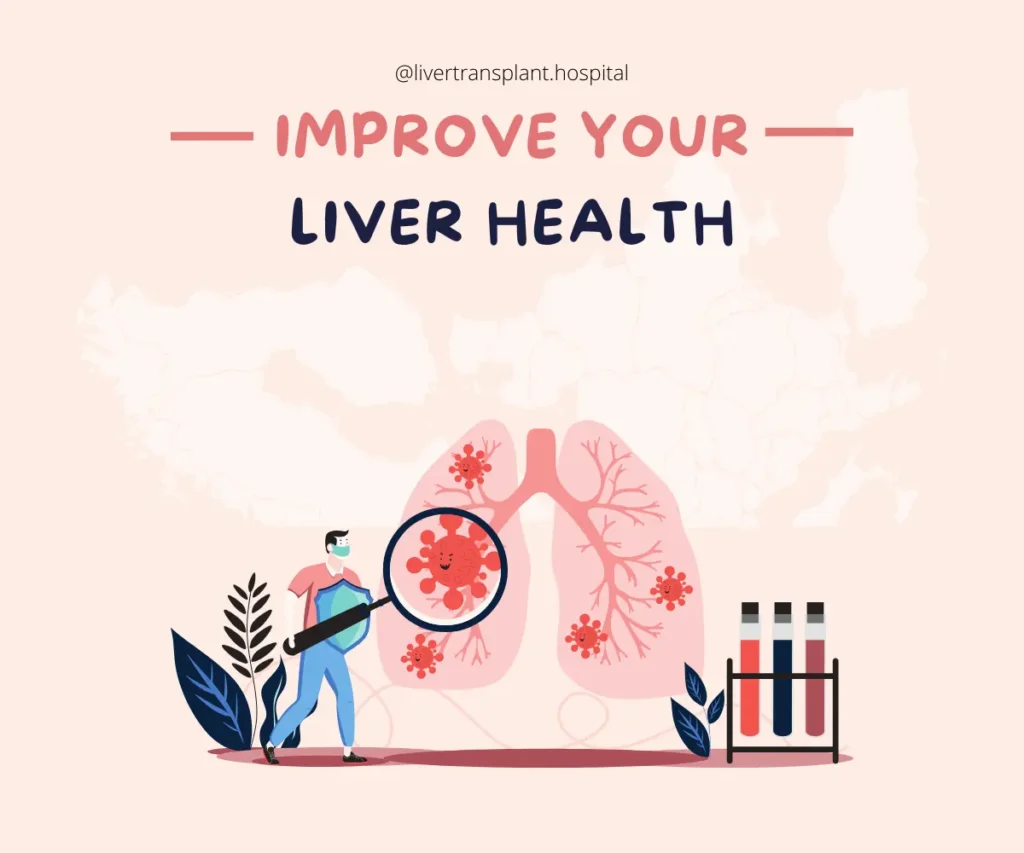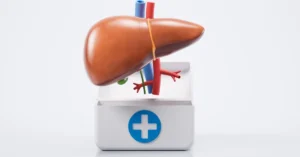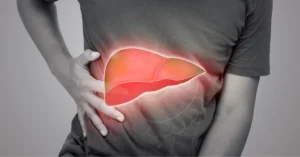Routine Check Ups
Routine check-ups are a cornerstone of effective liver transplant recovery. These follow-up visits are essential to monitor the health of the new liver and ensure that the transplant is functioning optimally. Regular appointments with your healthcare team allow for early detection of potential issues and timely intervention, which is crucial for long-term success. Here’s what you can expect during these routine visits:
- Blood Tests: Regular blood tests are vital to assess liver function and detect any early signs of rejection or complications. These tests help monitor levels of liver enzymes, bilirubin, and other markers critical for assessing liver health.
- Physical Examinations: Your healthcare provider will perform thorough physical exams to check for any signs of complications or changes in your overall health. This includes checking your vital signs and evaluating the condition of your liver.
- Imaging Studies: Periodic imaging studies, such as ultrasounds or MRIs, provide a visual assessment of the liver and surrounding organs. These studies help in detecting structural changes or potential issues that may not be apparent through physical exams alone.
- Medication Review: During routine check-ups, your medication regimen will be reviewed to ensure that you are adhering to your prescribed therapy. Adjustments may be made based on your current condition and any side effects you may be experiencing.
- Patient Education: These appointments also offer an opportunity for patient education. Your healthcare team will provide guidance on managing your health, recognizing symptoms of complications, and making necessary lifestyle adjustments to support your liver transplant.
Routine check-ups play a crucial role in ensuring the success of your liver transplant and maintaining your overall health and well-being.
Medication Management and Adherence
Effective medication management and adherence are critical for the success of a liver transplant. After liver transplant surgery, patients must follow a strict medication regimen to ensure the new liver is protected from rejection and to manage other aspects of their health. Here’s a detailed look at why this is so crucial:
- Immunosuppressants: These medications are essential to prevent the body’s immune system from attacking the transplanted liver. Adherence to the prescribed immunosuppressant regimen is vital to avoid acute or chronic rejection episodes.
- Anti-viral Medications: Patients often need antiviral drugs to protect against infections, which can be more common due to the immunosuppressive therapy. Consistent use of these medications helps prevent viral infections that could compromise the new liver.
- Regular Monitoring: Continuous monitoring through blood tests is necessary to ensure that medication levels remain within the therapeutic range. This helps in adjusting dosages and preventing potential side effects or complications from over- or under-medication.
- Managing Side Effects: Some medications may cause side effects such as gastrointestinal issues, fatigue, or increased risk of infections. Being proactive in reporting these side effects to your healthcare team ensures timely management and adjustment of the medication plan.
- Medication Adherence Strategies: To improve adherence, patients can use tools like pill organizers, set reminders, and establish a routine for taking medications. Regular follow-ups with healthcare providers also help reinforce the importance of adherence and address any concerns.
Proper medication management and adherence are fundamental for achieving a successful liver transplant recovery and ensuring the longevity of the new liver.
Managing Side Effects
After a liver transplant, managing complications and side effects is crucial to ensure the long-term success of the procedure. Despite the best care, patients may experience issues that require prompt attention. Here are key aspects to consider:
- Rejection Episodes: Acute or chronic rejection can occur when the body’s immune system attacks the new liver. Regular monitoring through blood tests and liver biopsies is essential to detect and manage rejection early. Immunosuppressant medications are prescribed to prevent these episodes, but they must be carefully balanced to avoid other complications.
- Infections: Immunosuppressants increase the risk of infections by suppressing the immune system. Patients should be vigilant about symptoms like fever, chills, or unusual fatigue and seek medical attention promptly. Prophylactic antiviral, antibacterial, and antifungal medications may be prescribed to reduce infection risks.
- Medication Side Effects: The medications required after a liver transplant can cause side effects such as nausea, weight gain, or mood changes. Regular follow-up with your healthcare team can help manage these side effects by adjusting medication types or dosages.
- Renal Issues: Some medications used in liver transplant recovery can impact kidney function. Regular kidney function tests are important to monitor and address any potential renal complications.
- Cardiovascular Problems: Long-term use of certain immunosuppressants can increase the risk of hypertension and other cardiovascular issues. Routine check-ups should include blood pressure monitoring and cardiovascular assessments to manage these risks effectively.
Proactive management of these complications is essential for maintaining the health of the transplanted liver and overall well-being. Regular communication with your healthcare team and adherence to prescribed treatments can help navigate these challenges successfully.
Nutritional and Lifestyle Adjustments
After a liver transplant, making specific nutritional and lifestyle adjustments is crucial for promoting optimal health and ensuring the success of your liver transplant recovery. These changes help support liver function, improve overall well-being, and enhance the longevity of the transplanted liver. Here’s what you need to focus on:
- Balanced Diet: Adopting a diet rich in fruits, vegetables, whole grains, lean proteins, and healthy fats supports liver health. Avoid foods high in saturated fats, sugar, and salt to prevent additional strain on the liver. A well-balanced diet also helps manage the side effects of immunosuppressant medications commonly used after a liver transplant.
- Hydration: Staying well-hydrated is essential. Aim to drink plenty of water throughout the day to help your liver process medications and flush out toxins. Proper hydration also aids in maintaining overall health and energy levels.
- Regular Exercise: Incorporate moderate physical activity into your routine, such as walking, swimming, or cycling. Exercise helps maintain a healthy weight, improves circulation, and enhances overall fitness, all of which support the liver transplant recovery process.
- Avoiding Alcohol: Alcohol can be extremely harmful to a transplanted liver. It’s crucial to abstain from alcohol entirely to protect your new liver and avoid complications.
- Smoking Cessation: If you smoke, quitting is vital for the health of your new liver. Smoking can increase the risk of infections and complications, and cessation supports overall health and recovery.
By focusing on these nutritional and lifestyle adjustments, you can significantly enhance the success of your liver transplant and support long-term health.
Psychosocial Support and Counseling
Psychosocial support and counseling are integral parts of the recovery process following a liver transplant. The emotional and psychological challenges associated with the transplant journey can be significant, making it crucial to address these aspects comprehensively.
- Emotional Adjustment: A liver transplant often comes with a range of emotions, from relief and hope to anxiety and fear. Professional counseling can help patients navigate these complex feelings and adjust to their new reality.
- Stress Management: The stress of undergoing a liver transplant surgery, coupled with the demands of long-term recovery and medication management, can be overwhelming. Stress management techniques, including therapy and support groups, are essential for maintaining mental well-being.
- Anxiety and Depression: Many patients experience anxiety or depression as they cope with the changes and uncertainties following a liver transplant. Counseling can provide strategies to manage these conditions effectively, improving overall quality of life.
- Support Groups: Connecting with others who have experienced a liver transplant in India or elsewhere can provide valuable support and practical advice. Support groups offer a sense of community and shared experience, which can be comforting and empowering.
- Family Counseling: The impact of a liver transplant extends beyond the individual to their family. Family counseling can help loved ones understand the challenges and support the patient effectively, fostering a supportive environment for recovery.
Engaging in psychosocial support and counseling ensures a holistic approach to recovery, addressing both the physical and emotional aspects of life after a liver transplant.
Regular Screening and Preventive Care
Following a liver transplant, regular screening and preventive care are critical to maintaining the health of the new liver and overall well-being. These measures help detect potential issues early and prevent complications that could impact the success of the liver transplant. Here’s what regular screening and preventive care typically involve:
- Cancer Screening: After a liver transplant, there is an increased risk of developing liver cancer or other cancers due to long-term immunosuppressant use. Regular imaging tests such as ultrasounds, CT scans, or MRIs are essential for early detection of any malignant changes in the liver or other organs.
- Infection Prevention: Immunosuppressive medications used post-transplant increase the risk of infections. Routine screenings and vaccinations are vital to protect against common and opportunistic infections. This includes annual flu shots and other vaccinations as recommended by your healthcare provider.
- Bone Health Monitoring: Long-term use of corticosteroids and other medications can affect bone density. Regular bone density tests (DEXA scans) help monitor bone health and manage any early signs of osteoporosis or other bone-related issues.
- Kidney Function Tests: Since medications used in liver transplant can impact kidney function, regular kidney function tests are necessary to ensure that the kidneys are functioning properly and to adjust medications if needed.
- Blood Work: Frequent blood tests are crucial for monitoring liver function and detecting any potential issues with the transplant. These tests help in adjusting immunosuppressive medication levels and managing side effects effectively.
Incorporating these preventive measures into your routine care plan is essential for the long-term success of your liver transplant and overall health.






